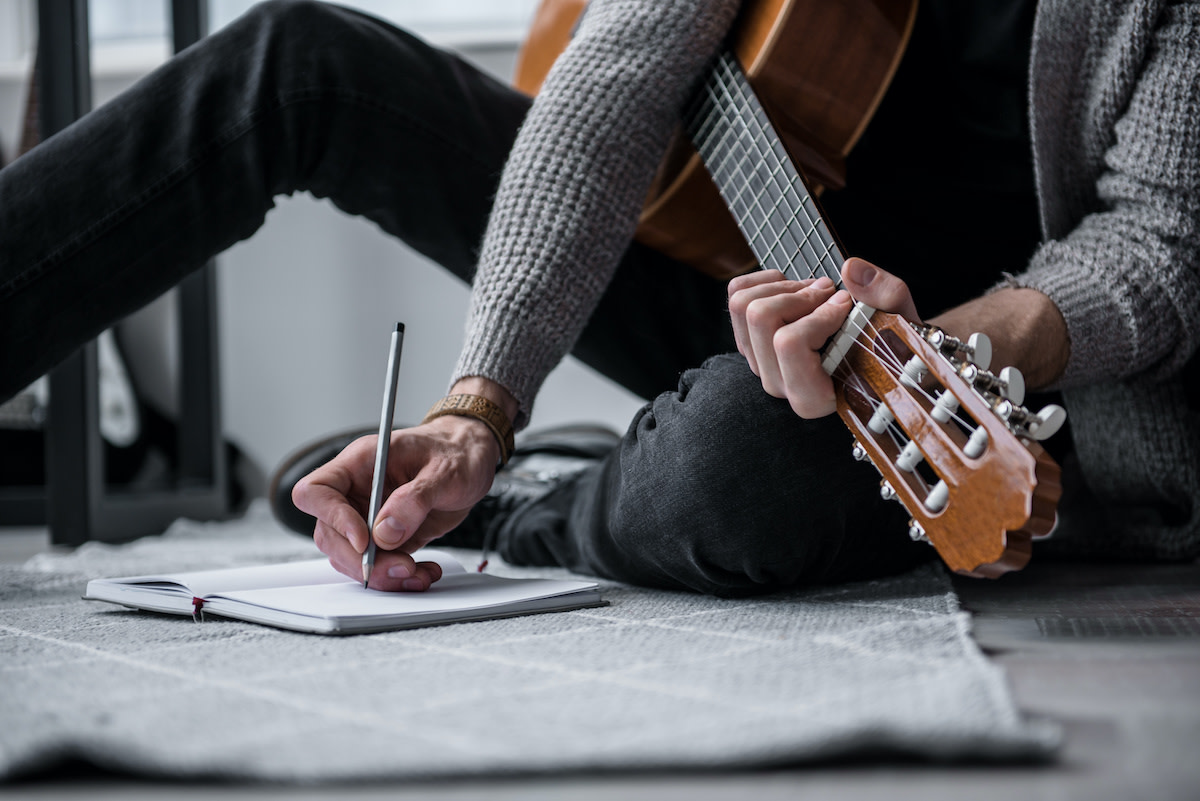13 Songwriting Prompts to Spark Creativity
Written by MasterClass
Last updated: Nov 5, 2021 • 3 min read
Writing songs is about more than raw musical ability. To generate new song ideas, it helps to follow gut inspiration but also establish a structure. Songwriting prompts can keep you on track.
Learn From the Best
What Is the Purpose of Songwriting Prompts?
Musicians use songwriting prompts to help them find inspiration, overcome writer's block, and break out of ruts where all new songs blend together. Whether you're a graduate of a top music school or you're a hobbyist writing your own music for the first time, consider incorporating song prompts as starting points for your next project.
13 Songwriting Prompts
Both beginners and music industry professionals are continuously seeking inspiration for their next great song. No matter what level you're at, use these songwriting exercises and writing prompts to help you start writing your next song.
- 1. Use multiple chord types. Write a chord progression that includes at least one major chord, one minor chord, one seventh chord, and one diminished chord. If you really want to challenge yourself, you can also try to work in an augmented chord.
- 2. Mix up your song structures. If you've never written a song with a bridge section, create a new song that has one. If you've never written a breakdown where some instruments drop out, try that. Perhaps you've never written an intro or a coda section; if not, do so. Push beyond your song structure comfort zone.
- 3. Copy the beat of an existing song but change the rest. Pick a favorite song—or even a random one from a playlist—and preserve the core beat (or groove) while changing the chord progression, melody, and lyrics.
- 4. Write music before the lyrics, or vice versa. If you're the type of songwriter who composes music before writing a single lyric, try starting with a full draft of song lyrics and composing around them. If you normally write lyrics first, switch it up and start with music.
- 5. Tell a story. Some of the most beloved songs tell a story. You can craft a story song from your own experience, or perhaps you can tell the tale of a historical character. Don't worry about repeated choruses. Let the actual narrative guide you.
- 6. Write from someone else's point of view. Many singer/songwriters default to their own point of view when drafting lyrics. For a creative writing challenge, try writing from someone else's point of view. It could be your best friend or someone you've never met. Take note of ways they might see the world that would differ from your own perspective.
- 7. Write away from an instrument. A great songwriting tip is to set down your instrument and hum or sing music ideas. If they sound good without an instrument, you might have a great melody on your hands.
- 8. Play with rhyme schemes. Lyric writing can often become bogged down in attempts to rhyme every line. Consider alternate rhyme schemes—or no rhymes at all—to free up your lyrical flow.
- 9. Start with a song title. Brainstorm a phrase or word that seems like the title of a good song. Then, using that as a prompt, write a song to fit that title. Experiment with music or lyrics that contradict the expectations you might have for a song with that title. For example, write a sad song with a happy title or a love song with an ironic title.
- 10. Pick up a new instrument. To create a different type of songwriting challenge, try writing with an instrument you don't know how to play. You may find yourself generating new musical ideas as you explore the instrument.
- 11. Write with a friend. Songwriting partners can help one another push through writer's block and see existing songs in a fresh light. Help a friend finish a tune they're working on, and let them help with your own song in return.
- 12. Read books. Some of the best songwriting ideas come from literature. You could craft a song plot around the plot of a book, or you could simply let the book's language guide you toward more abstract music and lyric ideas.
- 13. Use loops and record on top of them. Using software on a computer, smartphone, or even on a guitar pedal, record yourself playing a chord progression, and then loop it and play on top of it. You can create a multi-part song by simply playing along to recordings of yourself.
Want to Learn More About Music?
Become a better musician with the MasterClass Annual Membership. Gain access to exclusive video lessons taught by the world’s best, including Alicia Keys, St. Vincent, Sheila E., Timbaland, Itzhak Perlman, Herbie Hancock, Tom Morello, and more.
